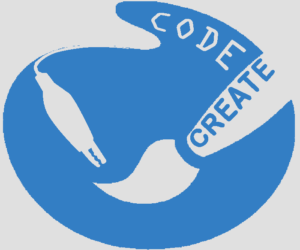The Situation
“The main goal of this project,” wrote principal investigators Roxana Hadad and Yue Yin to ACTMA’s funder, the National Science Foundation, “is to create an embedded, adaptive and culturally responsive formative assessment of the conceptual thinking in STEM that can be used in informal learning spaces, but can also be brought into more formal physics classroom experiences.” Accessing Computational Thinking in Maker Activities (ACTMA) project leaders sought an “expert” to “provide physics and CT instruction and materials for the development of the Makerspace activities.” CodeCreate it was a great fit.
The Solution
“CodeCreate participated in planning sessions and led instruction for the Summer Academy as well as purchasing and donating equipment and materials. We developed maker activities,” write the investigators, “and iterated them throughout the project… that explored a progression of circuitry knowledge alongside computational thinking from electric circuits, Makey Makeys, breadboards to Arduino.” We coached these activities over months of planning, four days of professional development training for staff members of Chicago Public Library (who then led activities) and two summer academies facilitating the building of lights as indicators, solenoids and components on breadboards in a way that was relevant to those with whom we worked, many from socioeconomic backgrounds unlike those of typical contemporary scientists. Indeed, “we revised the culturally responsive checklist to make it more adaptive to different environments including formal and informal learning settings” as we saw some incredible projects such as simulated hydraulics for cars, flashlights, model chicken coops and other items relevant to the students backgrounds.
The Success
Over 95% of students said “in exit interviews and focus groups that… they now found physics more accessible, that they could ‘make anything’ and they could see themselves using these problem solving (and computational thinking) skills in the future.” Outcomes, however, were even greater. “Formal educators,” the investigators wrote, “were interested in the engaging and motivating aspects of maker-based learning, while informal educators saw benefits to outlining learning objectives more clearly. Students indicated that they saw their learning differently after their experiences with this project, incorporating the ‘hands-on’ nature of science and computing with a ‘minds-on’ attitude.” Perhaps most meaningful, however, was the appreciation CodeCreate gained for the interplay of formal and informal education in our lives- we can certainly learn from each other but we must consider the context in which we learn. “The key outcome of this project has been the understanding that computational thinking is more than just about children interacting with computers, but is an issue of equity.”
